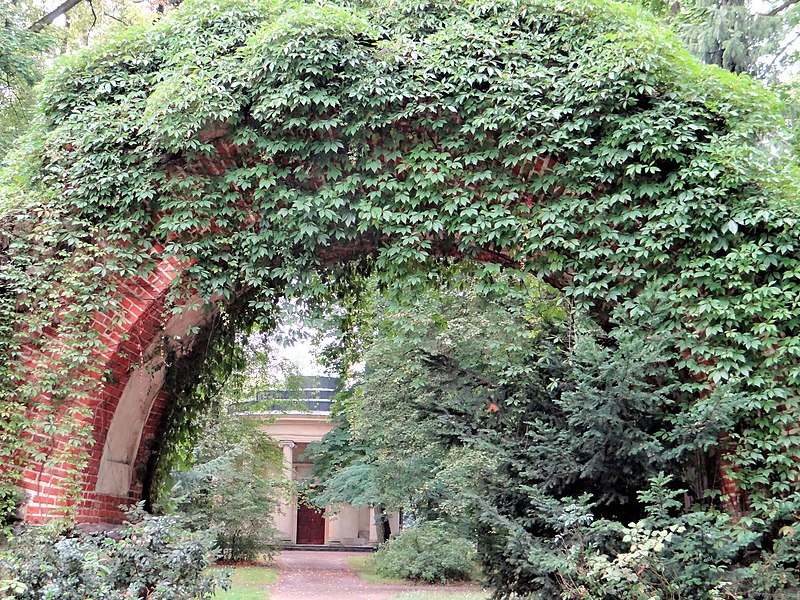The Our Mythical Childhood project’s funding period came to end last month on September 30th 2022 – but we have not stopped. Indeed, it’s as though we are more at the start of various endeavours. And, this autumn, and as a curious year moves to a close, I am planning to return to blogging after a gap that, unplanned, has run to several months.
In this time, I had not forgotten the blog. Indeed, I drafted quite a few postings including to report on activities I have been involved in. But I have been tied up with producing end products, including one directly relevant to this blog’s topic as it is my book of lessons for autistic children based on myths of Hercules.
The book is due out soon – in the coming months. And as I await its appearance out of production, I am going to share my progress with issues relating to autism and mythology via this blog.
 |
| Stone Arch, c. 1784, designed by Szymon Bogumił Zug for Helena Radziwiłł's Arkadia. The Arch frames Zug's 1783 Temple of Diana. Photo by Jolanta Dyr, Wikimedia Commons, Accessed 24 Oct. 2022 |
I am also going to share my progress so far with a chapter I am now writing for the book Our Mythical Nature. This is a chapter which, in the spirit of the Our Mythical Childhood project’s focus on the past – to inform the present and beyond – looks back to earlier endeavours and experiences while sharing details of recent events geared to lead to future paths.
Under the aegis of ‘Arkadia Revisited’ – the reasons for this title will become clear – I am planning to blog regularly.
So, as I often say ‘watch this space’ – but this time, hopefully (Hope will be a feature too), the watching shouldn’t need to happen for too long…
No comments:
Post a Comment